TU Graz wants to promote new and innovative approaches in teaching. For this reason, lecturers have the opportunity once a year to apply for funding for the redesign or adaptation of courses. Over 50 applications have been supported since then.
What is needed to make teaching at a university (even) better? A common answer to this question is: money and staff. The aim of the project fund is to provide some relief in the form of initial funding of several thousand euros and to enable new freedom in the realisation of courses.
Project Fund: What's this and why does it exist?
In the 2019/20 winter semester, workshops were held with general staff, teaching staff and students. The aim: to identify incentives that contribute to good or even better teaching at TU Graz. One declared wish was the regular distribution of funds for teaching, which are awarded according to defined criteria. In this way, all interested parties should have the same opportunities to receive funding in order to consciously counteract the "first come, first serve" principle.
The forced shift of all face-to-face teaching to distance learning in spring 2020 ultimately revealed some deficits in the technical equipment, which made teaching from home more difficult. A rapid form of monetary support needed to be created. As the available funds were limited, it was decided to launch the first call for proposals for the Project Fund for Teaching in order to distribute funds to submitting lecturers in a low-threshold manner and as quickly as possible - but still following a formalised, transparent submission process - and to enable the acquisition of resources such as hardware or software.
Funding of up to €7,500 per application is possible, as well as "smaller" applications with lower amounts of money. As many applications will be funded until the entire budget has been used up.
Due to the pandemic, the thematic focus in 2020 and 2021 was placed on digital teaching elements, and in 2022 the call was finally opened to all submissions. The prerequisite has always been that planned projects are implemented in courses in the academic year following the call. The fund was endowed with €50,000 between 2020 and 2023, with a maximum of €5,000 per submission. In 2024, these sums were increased to €75,000 and €7,500 respectively for the first time.
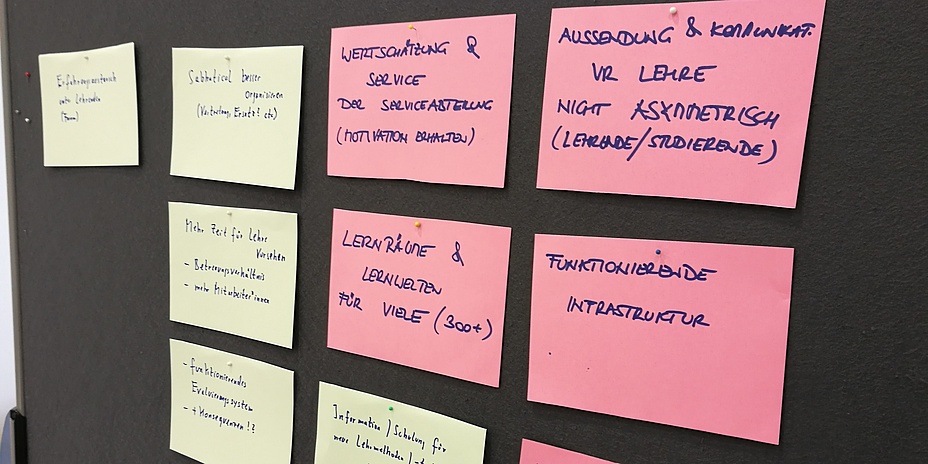
Selection: How does this work?
Once a year, all teachers are invited to submit proposals during the approximately six-week call period. All applicants fill out the same form, briefly explaining what their project involves and how much money is being requested. This is intended to increase comparability for the selection committee, which evaluates the submissions and decides on funding awards on this basis.
In addition to the Vice Rector for Academic Affairs, this selection committee consists of representatives of the Steering Group Didactics, a specialised working group that meets regularly and is made up of members of the departments/OUs of the Vice Rectorate for Academic Affairs. The members of the committee assess the criteria defined in advance based on points and decide on the final funding at a selection meeting.
Fundings: What is supported?
Roughly categorised, hardware, software and personnel are usually applied for and funded. Examples include the conversion of basement rooms previously used as storage rooms in institutes into high-end broadcasting studios, the development of apps that can be used to simulate electromagnetic laboratory experiments with a smartphone using augmented reality, or the use of student assistants to revise course concepts and documents. While the focus on digital teaching elements in the first two years was often placed on basic tools such as tablets/convertibles to borrow for students or the creation of virtual teaching content such as H5P-supported videos, the submissions subsequently became much broader in terms of subject matter.
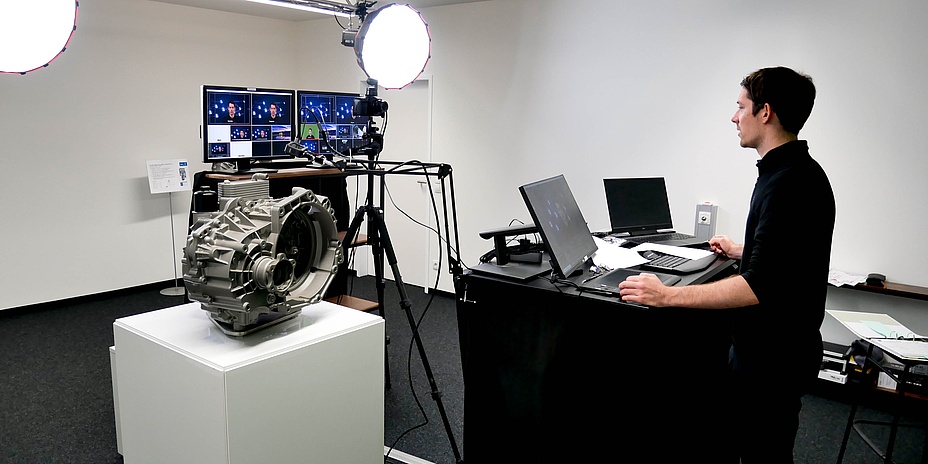
Particularity: Teaching and learning materials created as part of the funding programme must be made available as open educational resources (OER).
2023: a record-breaking year
With 31 submissions and 17 grants, 2023 was not only the year with by far the most submissions, but also the year with the most grants. In comparison: In the years 2020-2022, there was an average of around 19 submissions and 12 grants per year. The submissions in 2023 came from six of the seven faculties, as did the winners:
Architecture
- Clemens Berlach & Lukas Gschweitl (blended learning and project portfolio creation in architecture studies)
Civil Engineering
- Michael Gfrerer (course redesign using didactic elements)
Mechanical and industrial engineering
- Manfred Ulz (introduction of interactive teaching/learning videos and gamification elements)
- Clemens Faustmann, Stefan Kollegger, Philipp Kranabitl & Michael Bader (development of a quality-assured collection of exam questions)
- Kevin Pendl, Bernhard Heininger & Manfred Ulz (further development of a teaching/learning software for a better understanding of difficult-to-grasp maths problems in mechanical engineering)
- Kai Rüdele & Maria Hulla (sensor purchase for extended possibilities in laboratory operation)
Electrical Engineering and Information Technology
- Markus Schuß & Carlo Alberto Boano (extension of a hardware platform for conducting laboratory courses from home)
- Manuel Galler (extension of lectures with virtual 3D tours)
- Barbara Schuppler, Martin Hagmüller & Franz Pernkopf (setup of the conversational robot "Furhat" for use in teaching)
Technical Chemistry, Process Engineering and Biotechnology
- Gernot Krammer (interactive H5P learning videos for the visualisation of machine elements)
Computer Science and Biomedical Engineering
- Florian Unger (quality-assured script as revised learning material)
- Wolfgang Slany (course support through AI)
- Alexander Steinmaurer (further development of a virtual financial market for use in teaching)
- Gerhard Thallinger (gamification elements through virtual treasure hunts)
- Christian Dayé (further development of a political simulation game within a course)
- Theresa Rienmüller & Daniel Ziesel (integration of prostheses and exoskeletons for the realistic recording of biosignals)
- Marc Masana Castrillo (extension of a self-developed learning environment for machine learning)
A more detailed overview of the respective projects and the courses in which they are carried out can be found in the TU Graz cloud (mainly in German).
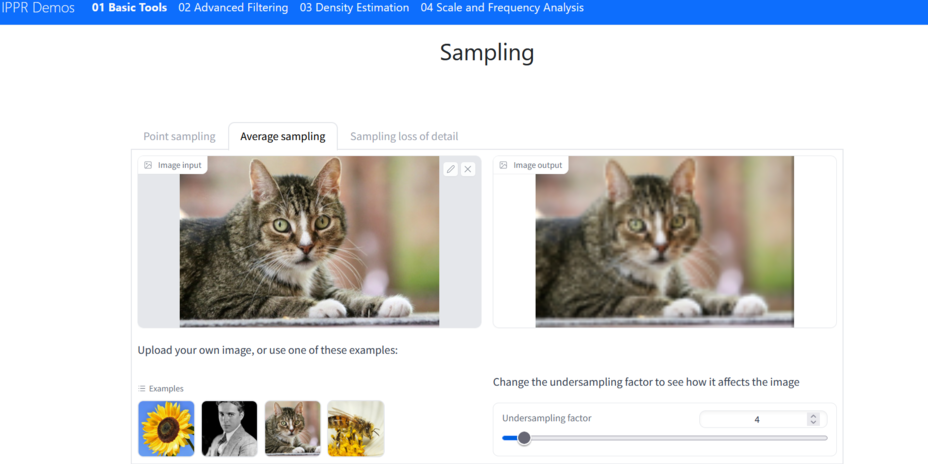
How can I submit?
Apart from the premiere year 2020, in which the call for proposals was issued in summer, submissions are always possible in spring. The exact submission period, the submission form and all other information can be found on the landing page for the project fund on the TU4U intranet. In 2024, the call for proposals was launched at the beginning of the summer semester for the first time in order to give lecturers the opportunity to include projects in their course planning for the following academic year at an earlier stage.
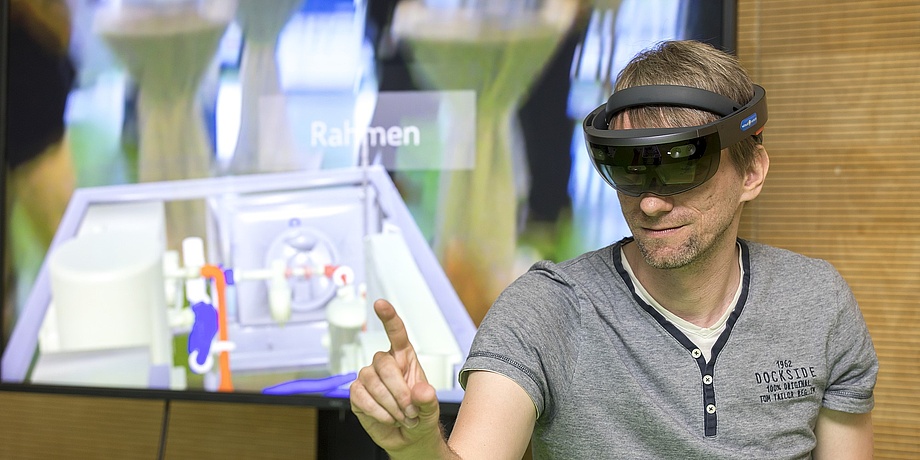
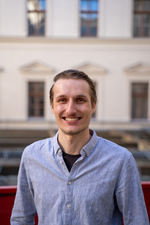
![[Translate to Englisch:]](https://www.tugraz.at/fileadmin/_processed_/a/e/csm_Working-as-a-student-by-fotogenia-tugraz_f8f6811020.jpg)
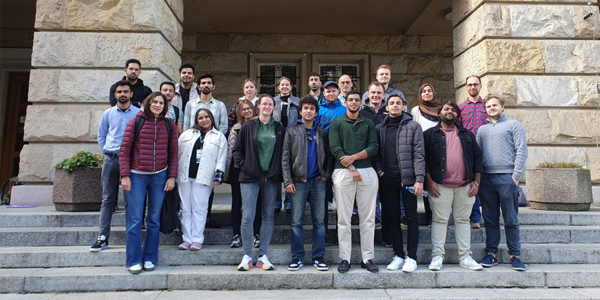
![[Translate to Englisch:]](https://www.tugraz.at/fileadmin/_processed_/5/3/csm_BNE_Titelbild_2zu1_48cb95ea58.jpg)

